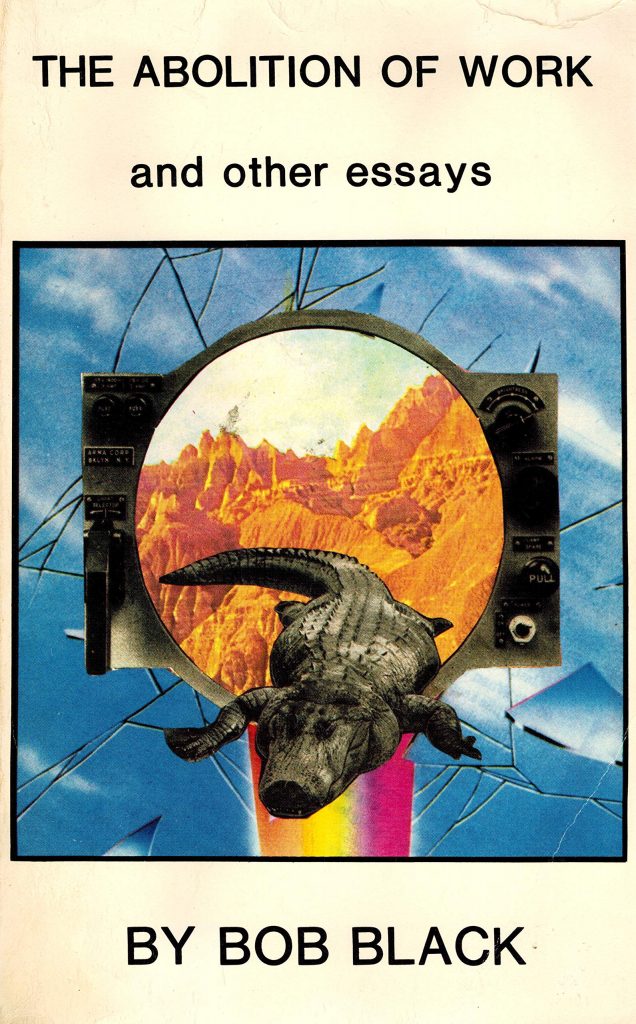
There couldn’t be an easier way to anger Fox News’ octogenarian audience than a millennial trans woman talking about how capitalism makes workers feel. Jesse Watters’ January interview with Doreen Ford, a moderator of subreddit, r/antiwork, stirred controversy around Reddit. “People still want to do things where they feel rewarded and they feel like they’re in a good spot in their life,” said Ford, “that their job respects them.”
The clutter of Ford’s room and lack of media training against Watters’ primp multi-million studio made her, and by extension her movement, feel more like red meat than a revolution.
It echoed an episode of Aaron Sorkin’s The Newsroom, in which a conservative anchor (Jeff Daniels) interviews a participant of Occupy Wall Street. The makebelieve protestor (Aya Cash) is asked what system she’d replace capitalism with, a question for which she cannot draw an answer. This is because in Sorkin’s tidy universe, there isn’t a replacement for capitalism.
Fox’s interview possesses none of Sorkin’s centrist idealism or snappy dialogue. It was just a sad shitshow to confirm the suspicions of cranks. “I think laziness is a virtue,” Ford told Waters and his crowd of apoplectic boomers. It was a gift to Fox in their quest to paint Ford as Welfare Queen 2.0. The kids don’t wanna work anymore! Probably so they have more free time to do gender stuff! But Ford’s generation are not the first to find themselves motivated with their wicks fully burnt. These ideas surrounding laziness come from a rich intellectual tradition.

The Right to be Lazy
In 1883, French socialist (and son-in-law of Karl Marx) Paul Lafargue wrote the “Right to be Lazy,” from a prison cell:
“A strange delusion possesses the working classes of the nations where capitalist civilization holds its sway,” wrote Lafargue. “This delusion is the love of work, the furious passion for work, pushed even to the exhaustion of the vital force of the individual and his progeny.”
Lafargue, in true French dude fashion, thought life was to be enjoyed. He had no patience for proletarians demanding better conditions– he wanted an end to all wage labour. The guy demanding an eight-hour workday was a sucker, not a hero. His harshest critiques were saved for those who owned the means of production and profited from the exploitation of wage labour.
“To fulfil his double social function of non-producer and over-consumer, the capitalist was not only obliged to violate his modest taste, to lose his laborious habits of two centuries ago and to give himself up to unbounded luxury, spicy indigestibles and syphilitic debauches, but also to withdraw from productive labour an enormous mass of men in order to enlist them as his assistants.”
 Like “Abolish the Police,” there are many, including r/antiwork participants, who know the power of a provocative slogan, even for the hesitant. A gateway to a new way of thinking about the world. Many who dare to imagine a society that could work — er, function — better without cops. Many who want to abolish work. Anarchist thinker Bob Black, whose 1985 essay, “The Abolition of Work,” is often cited in the subreddit, takes up Lafargue’s cause:
Like “Abolish the Police,” there are many, including r/antiwork participants, who know the power of a provocative slogan, even for the hesitant. A gateway to a new way of thinking about the world. Many who dare to imagine a society that could work — er, function — better without cops. Many who want to abolish work. Anarchist thinker Bob Black, whose 1985 essay, “The Abolition of Work,” is often cited in the subreddit, takes up Lafargue’s cause:
“Liberals say we should end employment discrimination. I say we should end employment. Conservatives support right-to-work laws. Following Karl Marx’s wayward son-in-law Paul Lafargue I support the right to be lazy. Leftists favor full employment… I favor full unemployment. Unions and management agree that we ought to sell the time of our lives in exchange for survival, although they haggle over the price. Marxists think we should be bossed by bureaucrats. Libertarians think we should be bossed by businessmen. Feminists don’t care which form bossing takes so long as the bosses are women.”
In Black’s view, even unions have bought into a fundamentally unjust premise. He desires a world without careerists, even the girlbosses.

Organizing a Movement
With almost two million members, r/antiwork has grown exponentially since the start of the pandemic. The most popular type of post is a screenshot of someone quitting their shitty job, trophies from hunting their own grind. One shared exchange, titled “Never told a boss off like this. And it felt amazing.” was between a boss and Brandon, the poster, being called to work over the holidays. “I’m telling you that you have to,” demands the boss. “And I’m telling you that you have no worker at all now,” responds Brandon, “I quit.” The discussion ends with Brandon’s thumbs up emoji.
These texts are cathartic and empowering, but how much does this catharsis and empowerment do for workers not in a position to quit? Many of the posters on r/antiwork are grateful for the tight labour market, finally able to tell their boss to shove it. They’re no longer living in terror of getting fired for not complying with exploitative demands and unpaid hours. But how does this movement stack up against traditional organizing or union drives?
“It’s kind of like pre-organizing,” says Wilson Sherwin, a sociologist with extensive writing on anti-work politics. “A really important part of organizing is helping folks collectively articulate their sense of injustice and their sense of deservingness to more than what they have. It’s doing the ideological intervention of it’s not ok that your boss treats you like shit. It’s not ok that you are one paycheck away from being evicted. It’s not ok that we all live like this despite having done all the things that we were supposed to do.”
It’s hard to read r/antiwork without seeing capitalism’s house of horrors. One viral, since deleted post read, “‘I Think My Employer Literally Worked My Coworker To Death.” It details how the coworker worked throughout chemotherapy as the sole income for her family. Peers attempted to donate their paid time off so she wouldn’t have to worry about money but management denied the request. “By the last shift that she worked, she could barely walk and had trouble speaking, AND STILL WORKED A 13 HOUR SHIFT.”
Kristin Lytie, a union organizer for educators and support staff in Wisconsin, believes in the subreddit’s value. “Employers love to push you into martyrdom” Lytie says, bosses duping workers into mistaking their jobs for causes. “I call it weaponized guilt.”
I asked Lytie how overcoming this “weaponized guilt” can lead to actual organizing. “It’s about having a group conversation,” says Lytie. “People take cues from each other, and that momentum will build. You build consensus in that conversation.”

Once it becomes evident the bosses are shameless, even the shame of laziness instilled by the Protestant Work Ethic starts to fade. “The pandemic has exposed so many of the deep and terrible cracks in our society,” says Kim Kelly, author of Fight Like Hell: the Untold History of American Labor, “particularly in the ways in which it mistreats and devalues the most vulnerable people, who all too often are the ones doing the most difficult and thankless jobs.” Moments when the federal government offers support go by in a blink, says Kelly, and then the poor are left to pick up the pieces yet again.
“The next generation of labour leaders is already out there doing the work, standing up against injustice,” Kelly says. “This is an exciting moment for labour, and I don’t see that momentum slowing anytime soon. The working class is no longer willing to accept capitalist crumbs; we want the whole damn bakery.”
Could the whole damn bakery include a world without wage labour? What the hell would that look like? Would we have doctors and stuff? The traditional Marxist answer to this question is, “To each according to his ability. From each according to his need.” Anarchist writer David Graeber argued that due to our technological capacities, people could already be working 3-4 hour days with the elimination of what he termed “bullshit jobs.” Jamie Peck, host of the podcast Everybody Loves Communism, says, “Marx has that passage about how a man could be a fisher in the morning, a poster in the afternoon, and a gamer in the evening.”
“I like this quote,” says Peck, “Marx doesn’t often give us descriptions of communist future world because he thinks that’s idealism and utopianism. All the great Marxists are very concerned with making sure you know that they’re doing science and not just dreaming up things for their vision board. But guess what? They still do it. Because why are any of us doing any of this? Because we want to have a nice life. And we want everyone to have a nice life.”
Ford is no longer a moderator of r/antiwork. Fox’s Watters was successful in dismissing the ideas Ford put forward on his show as utopian nonsense. The sub was brigaded by haters and even temporarily locked down. Even some leftists described a world without work as a fantasy.
But we don’t have to wait for utopia to put anti-work politics into action. In her 1972 Ms. piece, “Welfare as a Women’s Issue,” Johnnie Tilman, a leader in the Welfare Rights Movement, wrote: “In this country we believe in something called the ‘work ethic.’ That means that your work is what gives you human worth.” This movement, led primarily by black women, rejected the notion that work equals human worth by fighting for a guaranteed adequate income, echoed now by popular sentiments for a universal basic income. Sherwin, who has written extensively on the subject, tells me that goals like universal healthcare, rent control and eviction protection all move us closer to a life less beholden to the wage.
“My favorite definition (of anti-work politics),” Sherwin says, “comes from a French communist named Roland Simon, which is ‘the demand that work be neither the center nor the condition of people’s lives.’ So I think of anti-work politics as being really centered around the idea that people do not have to prove their worthiness or their right to live by working. The compulsion of waged labour is a fundamentally unjust and cruel and violent thing that we need to refuse.”

Kate Willett is a stand up comedian, host of the podcast Reply Guys, and author of Dirtbag Anthropology. She can be found @katewillett.
Photos by Lindsay Duncan.



